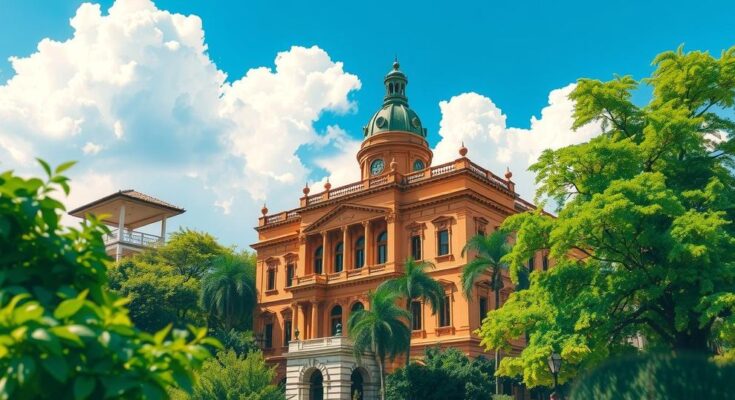Vice President Jeremiah Kpan Koung characterized his role as a “parked car,” illustrating the limitations imposed by the constitution on vice presidential authority. His remarks were made during a town hall meeting in Pennsylvania amid criticisms from diaspora Liberians regarding governance and human rights. Koung’s acknowledgment of these issues reflects a commitment to addressing community concerns, while his current U.S. engagement may impact future political aspirations.
In a recent town hall meeting in Pennsylvania, Vice President Jeremiah Kpan Koung referred to his role within the Liberian government as akin to a “parked car,” a metaphor highlighting the limitations imposed by the nation’s constitutional framework. He stated, “The way our laws are written, every vice president is a parked car…If the president doesn’t request that assistance, Mr. or Madam Vice President, go sit down in your office and go to session.” This analogy, echoing sentiments expressed by former Vice President Joseph Boakai in 2017, underscores the restricted influence of vice presidents in Liberia.
The notion of the “parked car” has historically been employed to criticize vice presidents, particularly during political campaigns. In 2017, opponents of Boakai likened him to an inactive vehicle. Upon taking office, Jewel Howard-Taylor also vowed to be a more active vice president, yet later tensions arose between her and the administration. Currently, Koung’s potential ascent to leadership could be threatened by political ambition, especially with President Boakai emphasizing focus on present governance rather than future elections.
VP Koung has faced speculation about his relationship with President Boakai, particularly after the latter’s warning to Cabinet members regarding political ambitions. In response, Koung asserted, “Is President Boakai working with me? Yes,” clarifying his advisory role while respecting the president’s authority. He acknowledged the dynamic of executive power, stating, “If President Boakai tells me to drop this mic and stop talking to you, I will do just that.”
The reception during Koung’s town hall was marked by protests from segments of the diaspora, expressing dissatisfaction with the government’s promises and alleged human rights abuses. Protesters accused the administration of negligence in justice-related matters, displaying a palpable atmosphere of anger. Despite this, Koung recognized the importance of dialogue with his constituents, saying he values their input and is motivated to address their grievances.
Koung’s U.S. trip also included participation in the 10th Powering Africa Summit, a significant event aimed at fostering U.S.-Africa partnerships in the energy sector. As his visit unfolds, it remains crucial to observe how his reflections on his role and the diaspora protests might influence his standing within Liberian politics and the current administration.
In conclusion, Vice President Jeremiah Kpan Koung’s comments underscore the constrained role of vice presidents in Liberia’s political structure, emphasizing the necessity for compliance with the president’s directives. Despite facing protests from the diaspora regarding governmental performance, Koung remains committed to dialogue and addressing the concerns raised by Liberians. His ongoing U.S. visit and participation in the Powering Africa Summit may shape his future involvement in Liberian politics and influence the administration’s effectiveness moving forward.
Original Source: frontpageafricaonline.com




